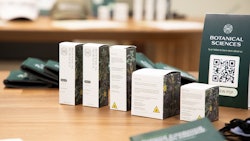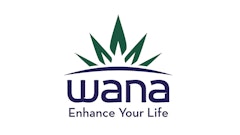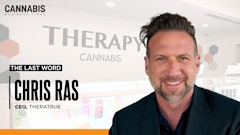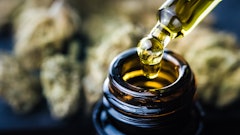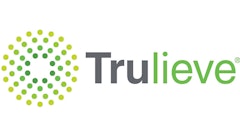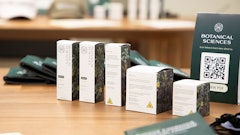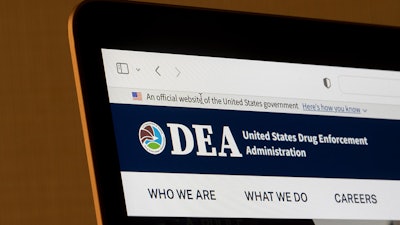
The U.S. Drug Enforcement Administration (DEA) has made its feelings known about Georgia’s unique medical cannabis program, which allows the state’s independent pharmacies to dispense medical cannabis oil to registered patients.
The DEA’s Diversion Control Division notified pharmacies Nov. 27 that because they are registered with the DEA, they are required to comply with federal law, which prohibits them from possessing, handling and dispensing cannabis.
The DEA’s letter, which was published by 11 Alive, states, “A DEA-registered pharmacy may only dispense controlled substances in Schedules II-V of the Controlled Substances Act. Neither marijuana nor THC can lawfully be possessed, handled or dispensed by any DEA-registered pharmacy. Under federal law, products derived from the cannabis plant with delta-9 THC content above 0.3% are considered marijuana, a Schedule I controlled substance. Further, products that contain any amount of a synthetically produced THC are considered to be tetrahydrocannabinols, likewise a Schedule I controlled substance.”
Georgia’s medical cannabis law, of course, conflicts with the policy described in the DEA’s letter, which was signed by Matthew Strait, deputy assistant administrator of the Diversion Control Division.
Georgia passed a law in 2015 to allow registered patients to possess cannabis oil containing no more than 5% THC and passed a separate statute in 2019 to legalize commercial cannabis production and sales.
A tumultuous licensing process and a string of legal challenges followed, but in September 2022, regulators awarded two companies, Botanical Sciences and Trulieve, licenses to grow, manufacture and sell cannabis oil. Each licensee can operate up to five retail locations and can also dispense medical cannabis products at independent pharmacies throughout the state.
Botanical Sciences and Trulieve launched operations and opened dispensaries in Georgia earlier this year, and both companies began dispensing products through partnering pharmacies in October.
More operators are expected to join the market soon after the GA Access to Medical Cannabis Commission (GMCC) approved the issuance of four provisional contract awards for Class 2 production licenses at its Nov. 15 public board meeting. The Class 2 production license allows businesses to grow up to 50,000 square feet of cannabis indoors, as well as manufacture oil and oil products that adhere to the 5% THC cap. The licensees can also apply for separate dispensary licenses.
The GMCC awarded the provisional licenses to FFD GA Holdings LLC (d/b/a Fine Fettle), TheraTrue Georgia LLC, Natures GA LLC and Treevana Remedy Inc.
While it remains to be seen how Georgia regulators will respond to the DEA’s warning letter to pharmacies, the GMCC has scheduled a meeting for Dec. 13 that will cover, in part, the DEA’s guidance.
In the meantime, some cannabis opponents are applauding the agency’s action.
“The Georgia Pharmacy Board’s move to allow the sale of THC oils over the counter in drugstores is a disaster for public health because it implies an FDA endorsement of these dangerous, psychoactive products that can have very serious consequences for users, especially young people,” Smart Approaches to Marijuana (SAM) President Kevin Sabet said in a public statement last week. “The DEA’s repudiation of this policy is good news for consumers, and I applaud their affirming the federal government’s position that marijuana is not medicine.
“As we’ve stated clearly throughout this debate, THC drugs are not medicine and federal law makes clear sales of marijuana and non-prescription THC drugs are illegal. The board’s decision to allow pharmacies to dispense unregulated THC oils flies in the face of the position of every major medical association, Surgeons General appointed by both parties, the FDA and the DEA.
“Unlike with prescription medications, there is no legitimate dosing regimen or other quality control mechanism in place for these drugs. THC oils are often so high in potency that any level of consumption could be dangerous to physical and mental health. Pharmacies found to be violating federal law should be shut down immediately and face the harshest penalties under the law.”
On the other hand, Georgia’s medical cannabis operators have celebrated the pharmacy sales model as a way to normalize cannabis as medicine and expand patient access.
“It does legitimize this industry much more,” Botanical Sciences CEO Gary Long told Cannabis Business Times last month. “If you’re using a trusted delivery method to actually get products into the hands of patients—not that there’s anything wrong with a standalone dispensary—but I think about maybe my mother and your mother who wouldn’t necessarily be comfortable going into a dispensary. My mother’s 80; she’s not going to go into a dispensary, but she’ll be more than happy to go to a pharmacy to get product if she has a card. So, I think that’s where this is a game changer, quite honestly, not just in Georgia, but potentially serving as a model in other states.”













